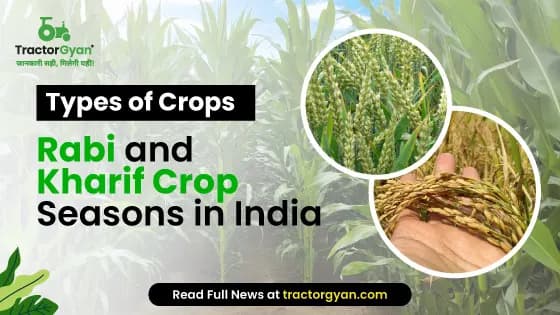Guava Fruit Farming - A Complete Guide For Farmers
टेबल ऑफ कंटेंट
Guava fruit (amrud fruit)/Psidium guajava, a tropical delight known for its irresistible taste and nutritional benefits, holds tremendous potential for farmers seeking profitable agricultural ventures. Guava fruit has huge demand among consumers of all ages across the globe.
In India, the Guava fruit is commonly known as “Amrud/Amrood” in the Hindi-speaking stage. Along with various uses of guava for health, this has unmatched agriculture significance as well. When done right, Guava cultivation (amrud ki kheti) is a profitable business and requires not much care.
This comprehensive guide will walk you through every aspect of guava fruit farming, equipping you with the knowledge and techniques needed for guava cultivation successfully from the orchard to the market. Whether you're a beginner or an experienced farmer, this guava plantation guide will provide invaluable insights to maximize your guava farming endeavors.
An Introduction to the Guava Fruit (Amrood Fruit)

A wise farmer is one that knows the crop well before cultivation as it helps adopt the right practices and procedures that will lead to a high yield. So, we will discuss a few things like guava farming and some other important details about guava fruit first.
As we all know, guava or Psidium guajava is a fruit that grows on evergreen trees belonging to the Myrtaceae family. The flesh of the guava fruit is typically white, yellow, or pink, based on colors guava is also known as red guava or pink guava, white guava, etc. and it contains numerous small, edible seeds at the center.
Some popular guava fruit varieties include Allahabad Safeda, Lucknow 49, Lalit, and Sardar. Guava fruit is often known as a nutrient powerhouse because it is a rich source of vitamins A, C, and E, as well as dietary fiber and antioxidants.
In addition to this, guava fruit is also rich in minerals like potassium, magnesium, and folate. All these nutrients bring tons of health benefits for those who consume this fruit regularly. No wonder why it enjoys substantial global demand. In domestic markets of India, guava fruit has huge demand as it is widely consumed both as fresh fruit and in processed forms.
Guava Fruit Farming In India - Few Key Statistics

Guava tree farming is one of the leading fruit cultivation in India. Amongst top guava cultivating countries like China, Thailand, Malaysia, and Pakistan, India grabs a top place in the list of ‘Top Guava Farming Countries in the world’. Before you start guava farming, know these interesting guava farming statistics.
The top Indian states for guava fruit production are Bihar, Uttar Pradesh, Karnataka, Andhra Pradesh, Maharashtra, Karnataka, West Bengal, Orissa, and Tamil Nadu.
According to the latest research, the total guava production across India was 4.92 million metric tons in the year 2022 and the cultivated area for amrood fruit was nearly 315 thousand hectares in the country in 2022.
India exports Guava fruit to over 30 countries across the globe. During the year 2020-2021, Uttar Pradesh remained the top state producing the highest quantity of guava. It contributes nearly 21% of total guava production in India. After that, we have Madhya Pradesh, Bihar, Andhra Pradesh, Haryana, Punjab, and West Bengal.
Climate and Soil Requirements for Guava Fruit Farming

The first step towards successful Psidium guajava/guava plantation in India is knowing the right climatic and soil requirements for this crop. This knowledge is super important. So, let's break down each section of amrud fruit farming.
Temperature for Guava Cultivation
The ideal temperatures for guava farming are between 25°C to 32°C (77°F to 90°F). Even though it can tolerate higher temperatures, the temperature shouldn't exceed 38°C (100°F).
Rainfall for Guava Cultivation
For optimal growth of this crop rainfall is between 1000 mm to 2500 mm (40 to 100 inches) annually. When guava fruit is in the development stage, it should get adequate moisture. But, it's important to make sure that there is no prolonged waterlogging in farming land.
Humidity for Guava Cultivation
The optimal humidity range for guava plantation is between 50% and 80%. In case of high humidity, there is a risk of fungal diseases.
Soil Requirements for Guava Cultivation
The perfect soil for guava farming is one with superb water-absorbing capability. Hence, we would recommend sandy loam or loamy soils for guava farming. Farmers should avoid heavy clay soils that often contain excessive moisture.
Soil pH for Guava Cultivation
For guava farming in India, farmers need an acidic to neutral soil pH ranging from 5.5 to 7.5.
Nutrient Management and Pest/Disease Control For Guava Farming In India

Farmers interested in doing guava fruit plantation in India need to learn about basic nutrient management and pest control for this crop so that the yield is better than ever.
-
The basic macro and micronutrients that guava farming requires are nitrogen, potassium, phosphorus, iron, boron, copper, and zinc. Experts at Tractor Gyan highly recommend conducting a soil test to check whether the farming land has all these nutrients in adequate quantity.
-
If the land is not that much fertile, it's suggested to use foliar sprays to fix the nutrient deficiencies for guava plantation.
-
As far as fertilizer dose is concerned, guava crops need approximately 600 grams of Nitrogen and 400 grams of Potassium in the Northern Region. For farmers of the Eastern region, this amount changes, and amrud farming needs 260 grams of Nitrogen and 320 grams of Phosphorus.
-
Other than farming on nutrient-rich soil for guava fruit farming, farmers should take appropriate measures to ensure that the crop is pest and disease-free. Guava crops are susceptible to pests like fruit flies, guava moths, and aphids.
-
To avoid these and many other crop diseases during guava cultivation, farmers are advised to adopt cultural farming practices, do biological controls on time, and use appropriate pesticide applications.
Harvesting and Other Details for Guava Farming In India

On average, the guava crop needs 120 to 150 days to be ready to harvest. However, you need to learn about some signs that indicate that the crop is ready to harvest. For instance, the amrood fruit will not have a raw smell and it will have a nice pigmented light green color. One tree can easily give two bountiful crops per summer season.
Extra Care Required For Guava Fruit Plantation
Other than these basic details, you should learn that:
-
Ripe guava fruits shouldn't be kept in cold storage and should be consumed as soon as possible.
-
The transportation of the crop should be done in a way that there is no harm done.
-
It's important to protect the amrud fruit from dangers like fungi, fire, and insects during transportation and storage.
-
Too high temperatures are not good for guava plantations.
Cost Involved in Guava Farming

Before you start the cultivation of guava fruit in India, you need to learn about the expenses involved in the process so that you’re prepared accordingly. So, we will try to decode this aspect of guava farming for you.
If we see the price of guava fruit in India, the average price is INR 100/ kg for standard varieties in urban areas. Some guava varieties are even sold at INR 140-200/ kg. This high selling cost might force one to think that its farming cost will be high too.
This depends on multiple factors like plants per acre, fertilizer cost, cost of planting material, labor cost, manure expenses, and other resources that are a part of the process.
However, the average farming cost for guava fruit is nearly 1.00 to 1.50 lacs* in India. But, you can make a huge profit with this crop as nearly 112 saplings can be planted on one acre of land. With these saplings, the average produced yield is 25-35 KG from one tree.
Keeping these figures in mind, if we do the rough calculations then the total profit of produce guava farming after one year is going to be INR 1,30,000.
Conclusion
Guava plantation in India is a fulfilling and profitable ventures if the right practices and procedures are adopted. As the guide explained, you have to learn about appropriate climate conditions, solid requirements, and other aspects that lead to better guava farming.
At TractorGyan, farmers have an opportunity to learn best practices about Guava farming in India and always stay ahead of the competition.
कैटेगरी
और ब्लॉग पढ़ें
India has been considered the ‘Land of Farming’ since ancient times because most of the population in India has adopted agriculture business as their primary business or family business. India's multiple agro-climatic zones, fertile terrain, and plentiful natural resources make it an...
Are you looking for the best central government scheme in India? We’re here to help. Below, you will find the best 27 central government schemes in India that farmers can avail of to get some financial help and ease down their farming...
Mumbai, June 2,2023: Swaraj Tractors, a rapidly growing tractor brand in the country and a part of the Mahindra Group, today launched a Compact Light Weight tractor range called the ‘Swaraj Target’. The new range from Swaraj is expected to set a...
इसके बारे में अपनी टिप्पणी लिखें Guava Fruit Farming - A Complete Guide For Farmers
.webp&w=1920&q=75)
ट्रैक्टर और कृषि से जुड़े सबसे अधिक खोजे जाने वाले ब्लॉग्स
18 Dec 2025
18 Dec 2025
29 Jul 2025
08 Sep 2025
03 Jul 2025
30 Jul 2025
30 Jul 2025
30 Jul 2025
29 Jul 2025
30 Jul 2025
26 Dec 2025
31 Jul 2025
18 Dec 2025
26 Dec 2025















.webp&w=2048&q=75)










.webp&w=2048&q=75)
.webp&w=2048&q=75)







.webp&w=640&q=75)



















